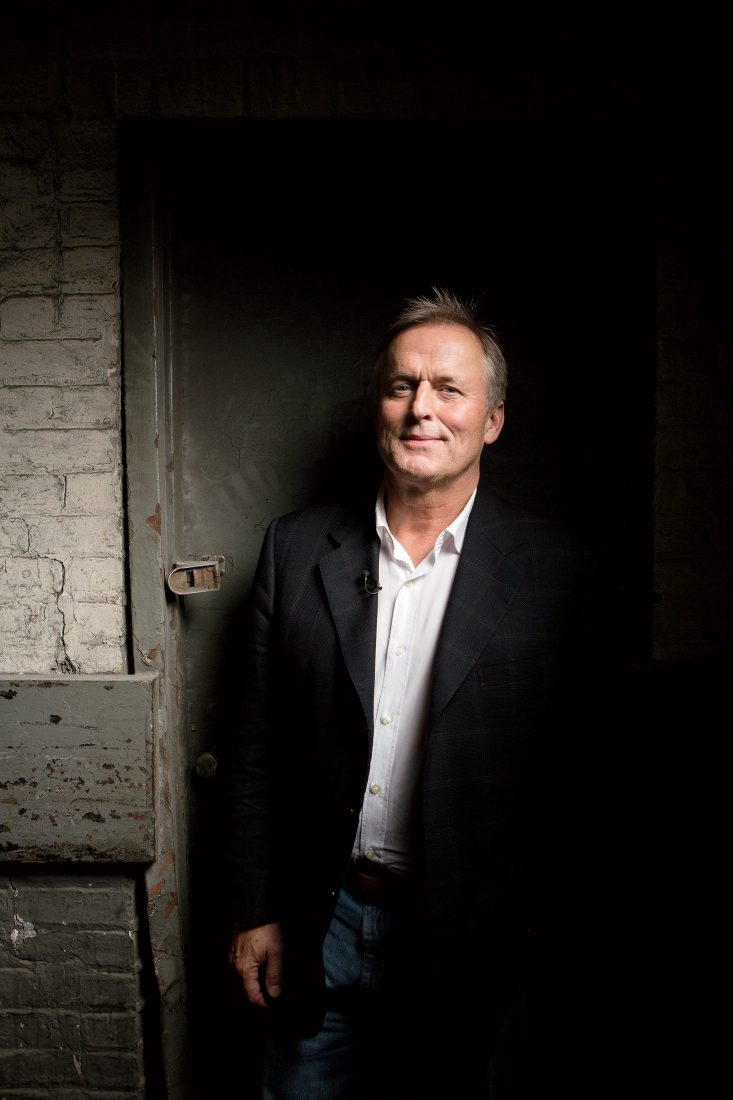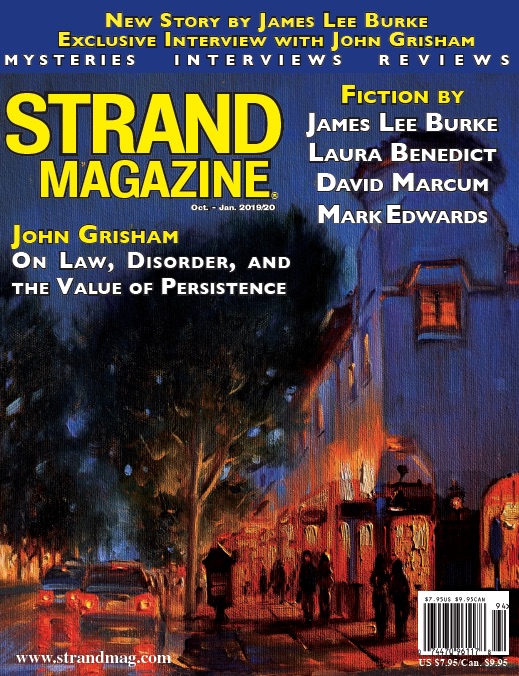Interview with John Grisham
For the last thirty years, the term legal thriller has been synonymous with John Grisham. Credited with single-handedly popularizing the genre, he has inspired scores of other authors and, in the process, has become both a commercial and critical success. With more than forty books to his name, more than 300 million copies sold, and several film adaptations, it’s
hard to imagine Grisham was ever a struggling writer. Yet his first novel—written while he was working as a trial lawyer and state legislator in Mississippi—failed famously. A Southern courtroom drama fraught with racial tension, A Time to Kill was published by a small press in 1988 to little acclaim and did not receive mass distribution until its re-release years later. Grisham’s next book, The Firm (1991), about an ambitious young lawyer who starts to investigate his law firm after several partners die mysteriously, was a definite departure from his debut. It wasn’t long before it catapulted to the best-sellers lists and Hollywood came calling.
From the very first paragraph of The Firm, it is easy to understand Grisham’s wide appeal: “. . . there were no women in the firm. That mistake had been made in the mid-seventies when they recruited the number one grad from Harvard, who happened to be a she and a wizard at taxation. She lasted four turbulent years and was killed in a car wreck.” It says so much with so little, capturing the reader’s interest from the outset. And Grisham continues to ratchet up the tension throughout, forcing the reader to compulsively turn pages until the thunderous crescendo. Throughout his writing career, Grisham has used his novels to intellectually and morally challenge readers on hot-button issues—for example, the unchecked power of tobacco companies (Runaway Jury, 1996), the lack of regulation of companies dumping toxic waste into water supplies (The Appeal, 2008), the deeply flawed system surrounding capital punishment (The Confession, 2010), and, in his 2017 novel The Rooster Bar, the controversial practices of for-profit law schools.
Grisham has also used his success to give back. He sits on the board of the Innocence Project, which has exonerated hundreds of people convicted of crimes they didn’t commit, and he has raised millions of dollars to clean up the Gulf Coast since Hurricane Katrina. Ever the baseball fan, Grisham has built six Little League fields on his property for local kids to partake in the great American pastime. Grisham has received several awards, notably the Golden Plate from the American Academy of Achievement in 1993, a British Book Award for Lifetime Achievement in 2007, the Library of Congress Creative Achievement Award for Fiction in 2009, and the Harper Lee Prize for Legal Fiction in 2011 and 2014. John Grisham was kind enough to grant us this interview in 2018 and generous in providing follow-ups this fall. His latest book,
The Guardians, was released in October 2019 by Doubleday.
AFG: When you look at the hundreds of millions of books you’ve sold, do you ever ask yourself, “What if I decided to call it quits after my first book?”
JG: No, but I often wonder where I would be if I had stopped writing A Time To Kill and never finished it. Several times, I went a month or so without touching it. My wife always encouraged me to keep going.
AFG: I loved The Rooster Bar. Was part of it inspired by the whole Trump University affair?
JG: Not necessarily Trump University, but rather the whole rotten concept of profiting from education. Why do we allow corporations to do so? Same for prisons?
AFG: Who would you list as some of your favorite authors?
JG: Mark Twain, John Steinbeck, Charles Dickens, William Styron—enough of the dead guys. Ian McEwan, John Le Carré, James Lee Burke, Michael Ondaatje, Scott Turow, David Grann, Michael Lewis, David McCullough, Doris Kearns Goodwin.
 AFG: A lot of your books, namely The Whistler and Rogue Lawyer, illustrate your deep understanding of the legal world. Would you say that a lot of these ideas have a foundation in your career as a lawyer, or are you constantly reading articles, following court cases?
AFG: A lot of your books, namely The Whistler and Rogue Lawyer, illustrate your deep understanding of the legal world. Would you say that a lot of these ideas have a foundation in your career as a lawyer, or are you constantly reading articles, following court cases?
JG: Almost all of my books have been inspired by something I did, saw, or read about when I was a young lawyer in Mississippi many years ago, or something I read yesterday. And, yes, I am constantly trolling the news for stories about lawyers, firms, cases, courts, judges, appeals, litigation trends. That’s my world.
AFG: What advice do you have for writers who are starting out?
JG: I hate to give advice. It’s so easy to dispense and even easier to ignore. Get a real job in a real career and stake your claim in your
chosen field, then write as a serious hobby.
AFG: Do you remember when you typed THE END of The Firm? Did you have a feeling that this one would be the game changer?
JG: Hardly. When I finished The Firm, I had no publishing contract because my first book was such a flop. For the first six months after
The Firm was finished no publisher wanted to buy it. However, my wife always believed that it would be a “big book.”
If you’d like to purchase the issue with the complete interview with John Grisham, please follow this link.

